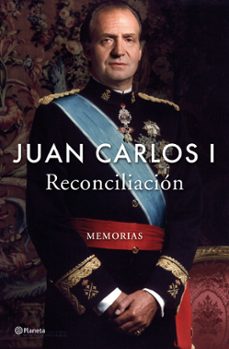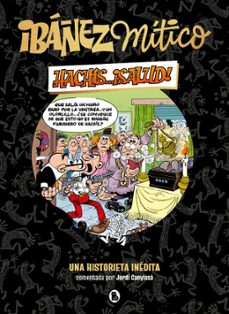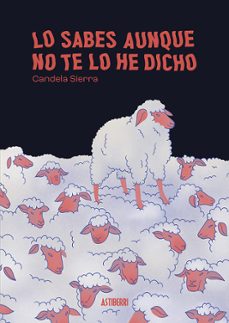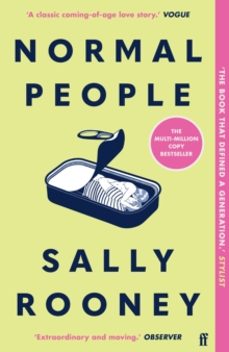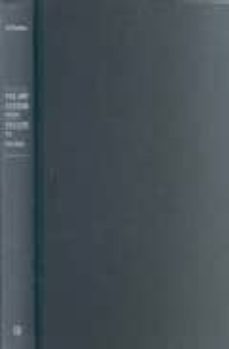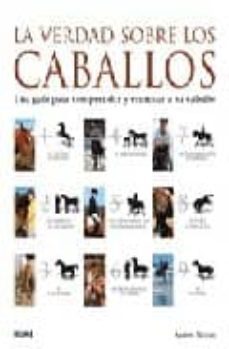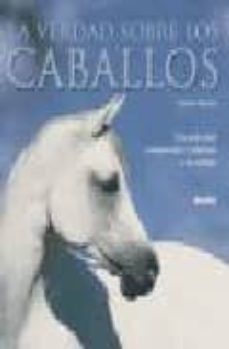Imprescindibles
Ficción
No Ficción
Ciencias y tecnología Biología Ciencias Ciencias naturales Divulgación científica Informática Ingeniería Matemáticas Medicina Salud y dietas Filología Biblioteconomía Estudios filológicos Estudios lingüísticos Estudios literarios Historia y crítica de la Literatura
Humanidades Autoayuda y espiritualidad Ciencias humanas Derecho Economía y Empresa Psicología y Pedagogía Filosofía Sociología Historia Arqueología Biografías Historia de España Historia Universal Historia por países
Infantil
Juvenil
#Jóvenes lectores Narrativa juvenil Clásicos adaptados Libros Wattpad Libros Booktok Libros de influencers Libros de Youtubers Libros Spicy Juveniles Libros LGTBIQ+ Temas sociales Libros ciencia ficción Libros de acción y aventura Cómic y manga juvenil Cómic juvenil Manga Shonen Manga Shojo Autores destacados Jennifer L. Armentrout Eloy Moreno Nerea Llanes Hannah Nicole Maehrer
Libros de fantasía Cozy Fantasy Dark academia Hadas y Fae Romantasy Royal Fantasy Urban Fantasy Vampiros y hombres lobo Otros Misterio y terror Cozy mistery Policiaca Spooky Terror Thriller y suspense Otros
Libros románticos y de amor Dark Romance Clean Romance Cowboy Romance Mafia y amor Romance dramatico Romcom libros Sport Romance Otros Clichés Enemies to Lovers Friends to Lovers Hermanastros Slow Burn Fake Dating Triángulo amoroso
Cómic y manga
Novela gráfica Novela gráfica americana Novela gráfica europea Novela gráfica de otros países Personajes, series y sagas Series y sagas Star Wars Superhéroes Cómics DC Cómics Marvel Cómics otros superhéroes Cómics Valiant
eBooks
Literatura Contemporánea Narrativa fantástica Novela de ciencia ficción Novela de terror Novela histórica Novela negra Novela romántica y erótica Juvenil Más de 13 años Más de 15 años Infantil eBooks infantiles
Humanidades Autoayuda y espiritualidad Ciencias humanas Economía y Empresa Psicología y Pedagogía Filosofía Historia Historia de España Historia Universal Arte Cine Música Historia del arte
Ciencia y tecnología Ciencias naturales Divulgación científica Medicina Salud y dietas Filología Estudios lingüísticos Estudios literarios Historia y crítica de la Literatura Estilo de vida Cocina Guías de viaje Ocio y deportes
ANDREW MCLEAN
Recibe novedades de ANDREW MCLEAN directamente en tu email
Filtros
Del 1 al 3 de 3
UNIVERSITY OF CALIFORNIA PRESS 9780520247673
"Andrew McClellan's well-conceived, thoughtfully argued book provides a much-needed history of the art museum as well as an astute assessment of critical issues facing museums today. There has been a pressing need for a synthetic, even-handed overview like this one. It will find a large readership among those concerned with museums, art history, and cultural policy, and I predict it will be widely used in courses in museum and curatorial studies."--Martha Ward, author of "Pissarro, Neo-impressionism and the Spaces of the Avant-Garde" ""The Art Museum from Boullee to Bilbao" is extremely important to the growing field of museum studies. It will make an excellent text and will also be important to museum professionals, who must be aware of the complexity of the critical issues it covers. It is the only book that addresses museum architecture, ideals and missions, collecting and display, restitution and repatriation, commercialism, and the public."--Harriet F. Senie, author of "The Tilted Arc Controversy: Dangerous Precedent?" "The increasing number of people interested in the history of museums have benefited greatly from Andrew McClellan's contributions over the past two decades. In this exemplary volume, McClellan summarizes and extends his perspectives on museums as institutions 'of hope and aspiration' as he establishes a much needed context for the rhetoric of celebration and critique emanating from within and without these organizations. It is a useful as well as an important book and one that will be read by many--students and lay public alike--as they attempt to make sense of these institutions and the sometimes conflicting accounts of their purpose and programs."--MichaelConforti, Director of the Sterling and Francine Clark Art Institute "Combining powerful critique with a grounded utopianism, Andrew McClellan dissects the art museum's past in order to identify its emancipatory potential for the future. The result is a tour de force that reinvigorates our sense of why art museums matter. This is a book that will leave its mark on debates about the social role of museums for some time to come."--Tony Bennett, Director, ESRC Centre for Research on Socio-cultural Change "With its long historical view of ongoing controversies and deba
Ver más
Tapa dura
BLUME 9788480768405
Un nuevo y radical enfoque sobre el entrenamiento, con un análisis acerca de las funciones cerebrales del caballo. En este contexto se puede aprender cómo el entrenamiento se incorpora a la conducta del caballo y por qué se dan los fracasos. Los métodos de entrenamiento se han desarrollado a través de la rara combinación de la investigación científica y el entrenamiento práctico y profesional de caballos. Para poder comprender al caballo de una manera no antropomórfica, se debe aceptar que las prácticas de entrenamiento basadas en castigos y recompensas ineficaces no son apropiadas. Los métodos de entrenamiento descritos en esta obra no son más que un cambio en el paradigma sobre la forma de entrenar y comprender a los caballos. Ésta es una obra para cualquier persona que desee comprender mejor a su caballo o se pregunte por qué éste se comporta de la forma en que lo hace. Por ello, resultará enormemente beneficioso para todo aquel involucrado en el rendimiento o la cría caballar, incluidos los jinetes de competición, los entrenadores, los criadores y los veterinarios de caballos.
Ver más
Tapa blanda
BLUME 9788480765138
Esta es una guía para cualquier persona se desee comprender mejor a su caballo o se pregunte por qué se comporta de la forma que lo hace. Por ello, resultará enormemente beneficioso para todo aquel involucradi en el rendimiento o la cría de caballos, incluidos los jinetes de competición, los entrenadores, los criadores y los veterinarios de caballos.
Ver más
Tapa dura
Del 1 al 3 de 3

